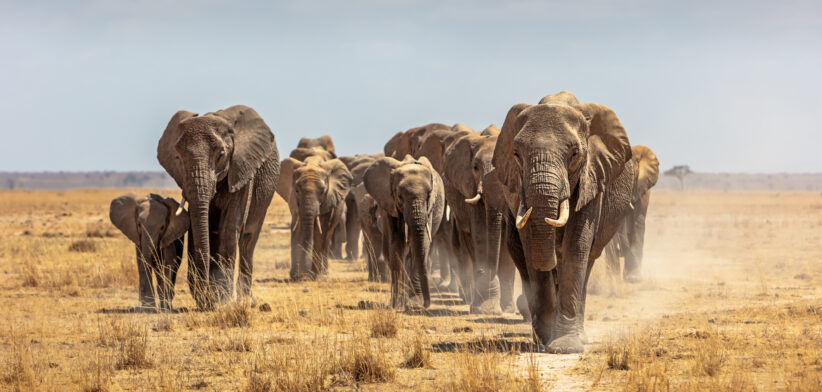Elephants appear to call each other by name, according to a recent study.
They use personalised calls specific to each member of their group – just like humans according to Cornell University behavioural ecologist Michael Pardo.
From 1986 – 2002, Pardo and his colleagues used a machine-learning technique to record 469 rumbles of wild female African savannah elephants and their offspring in Amboseli National Park, Kenya.
They played recordings of these calls to 17 elephants and compared their reactions. The elephants became more vocal, and moved more quickly towards the speaker when they heard their “name” compared to when they heard rumbles directed at other elephants, according to the findings, published today in Nature Ecology and Evolution.
Mr Pardo said he had a hunch that elephants might also have a name for each other, because of their extensive vocal communication and rich social relationships.
“They could tell if a call was addressed to them, just by hearing that call,” Mr Pardo said.
“There’s a lot more sophistication in animal lives than we are typically aware. Elephants’ communication may be even more complex than we previously realised.”
The next question for the team involves working out how elephants encode information in their calls. That would “open up a whole range of other questions we could ask,” Mr Pardo said. These include whether elephants also name places or even talk about each other in the third person.
Other than humans, few animals give each other names. Bottlenose dolphins and orange-fronted parakeets are known to identify each other by mimicking the signature calls of those they are addressing.
In contrast, humans use names that have no inherent association with the people or objects they’re referring to.








